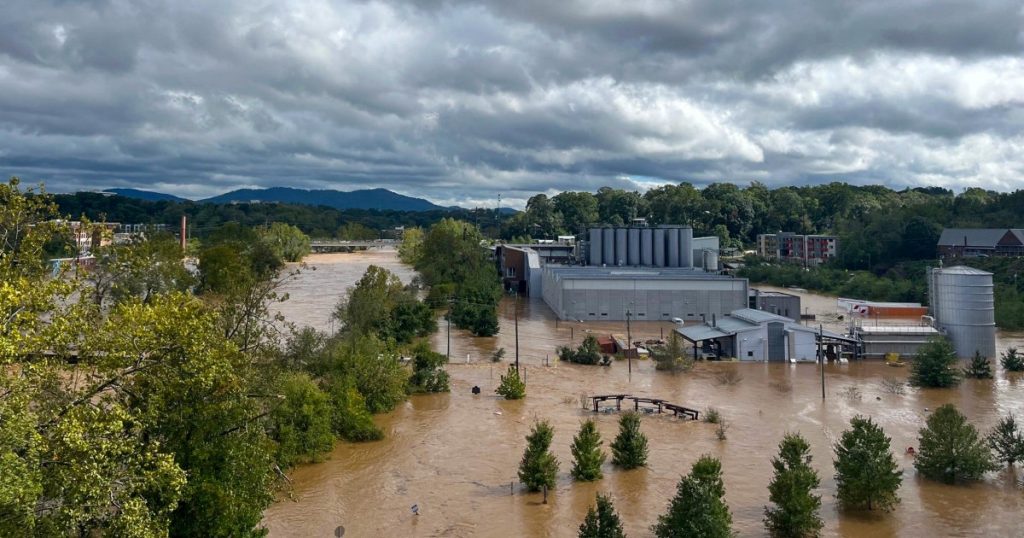The historic village of Biltmore in western North Carolina experienced devastating flooding damage from Hurricane Helene, with debris floating through the streets and water levels reaching several feet high in some areas. Residents like Tammy Borgesen were left without power and were attempting to reach out to loved ones to let them know they were safe. The flooding was described as catastrophic, with one resident expressing concern for friends, neighbors, and businesses along the river. Climate change was partially blamed for the destruction, serving as a reminder of the need for immediate action against its impacts.
Asheville, a city of 95,000 residents located 140 miles west of Charlotte, was hit hard by Hurricane Helene’s flooding and destruction. At least 42 people have been confirmed dead as of Saturday, and millions were left without power in states such as South Carolina, North Carolina, Georgia, Florida, and Ohio. The storm, now a post-tropical cyclone, severely impacted the southeast region, causing widespread devastation and leading to emergency declaration requests from multiple governors. Efforts to rescue over 50 people stranded in an eastern Tennessee hospital due to rising water levels proved challenging.
President Joe Biden approved emergency declaration requests from multiple southern states affected by Hurricane Helene, including Georgia, Florida, Alabama, North Carolina, Tennessee, and South Carolina. The government will provide various forms of federal assistance, with over 1,500 federal personnel being deployed to the region to assist in search and rescue operations, medical support, and power restoration. The devastating impacts of the storm serve as a grim reminder of the urgent need to address climate change and its consequences.
Residents of Biltmore Village in Asheville were left in a state of limbo, waiting out the storm and hoping for the best as they grappled with the aftermath of the flooding. The French Broad River overflowed its banks in the River Arts District of Asheville, causing damage and destruction to homes and businesses in the area. The scenes of loss and devastation following Hurricane Helene were heartbreaking for residents, as they came to terms with the extent of the damage and the challenges of rebuilding their community.
The effects of Hurricane Helene were far-reaching, impacting a large portion of the southeastern United States and leaving a trail of destruction in its wake. With millions of residents left without power and numerous rescue operations underway, the storm highlighted the vulnerability of communities to natural disasters and the urgent need for preparedness and response measures. The federal government’s swift approval of emergency declaration requests and deployment of resources to the affected areas demonstrated a commitment to supporting those impacted by the storm and aiding in the recovery efforts.
Overall, the devastation caused by Hurricane Helene in western North Carolina and surrounding states underscored the destructive power of natural disasters and the importance of climate change mitigation and adaptation measures. As communities grappled with the aftermath of the storm, the resilience and solidarity of residents were evident as they worked together to overcome the challenges posed by the flooding and destruction. The response from government agencies and emergency personnel highlighted the need for coordinated efforts to address the impacts of extreme weather events and protect communities from future disasters.












